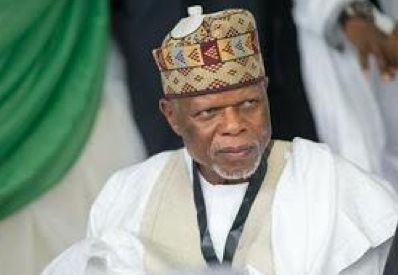The Tin Can Island Command of the Nigeria Customs Service (NCS) generated N130.76billion revenue in the first seven months of the year.
A statement by the command on Monday in Lagos, said that the Customs Area Controller, Comptroller Yusuf Bashar, made the disclosure while exchanging views with some stakeholders in his office.
The revenue of the command nose dived from N145.60 billion recorded in the seven months of 2015. This represents a year-on-year revenue shortfall of 10.2 percent or N14.84billion.
The controller said that the statutory function of the command remained revenue generation and facilitation of legitimate trade.
He said that deliberate and concerted efforts were being made in terms of strict adherence to the rules and standards of operation.
He said that the operations, processes and procedures of Customs were fully automated so that trade facilitation could be guaranteed.
The controller, however, said that trade facilitation could only work when importers and their agents were transparent in their declarations.
The controller also reacted to the current hike in the exchange rate for calculating import duty, which is generating concern in the maritime sector.
He said that the NCS, as an agency of the Federal Government, was charged with the implementation of the Federal Government’s fiscal policies.
“It is instructive to note that the Nigeria Customs Service by its statutory role, does not determine exchange rate but only relies on the Central Bank of Nigeria to update us with information in accordance with its establishing Act.
“It is, therefore, pertinent to note that the current situation is beyond the Customs,” Bashar said.
The controller said that the command’s operational methodology was in sync with the change ideology of the Comptroller-General of Customs, Hameed Ali, which encompassed discipline, integrity, transparency and due diligence.
He said, “There is a paradigm shift in the operational system of the command geared towards strengthening the drive in ensuring that the time of cargo delivery is reduced to the barest minimum.”
The controller expressed his passion for stakeholders’ engagement to strengthen professionalism, promotion of inter-agency collaboration and synergy to ensure robust relationship as well as on-the-job capacity building.
He also mentioned the need to enhance officers’ knowledge, particularly in modern trends and practices, which would promote trade facilitation and due diligence.
He said the command was obliged to ensure zero tolerance for corrupt practices in line with global best practices, urging stakeholders to support the service in all aspects, so that maximum revenue could be generated in line with the vision and mission of the service.
Bashar said that part of the measures put in place for the actualisation of his mandate “is the assistance of a specialised committee named Dispute Resolution Committee”.
The committee, according to him, was charged and entrusted with the responsibilities of resolving contentious issues which might arise in areas of classification and valuation of goods.
He said that this would ensure that such disputes are resolved using the statute books.
Copyright Ships & Ports Ltd. Permission to use quotations from this article is granted subject to appropriate credit given to www.shipsandports.com.ng as the source.

